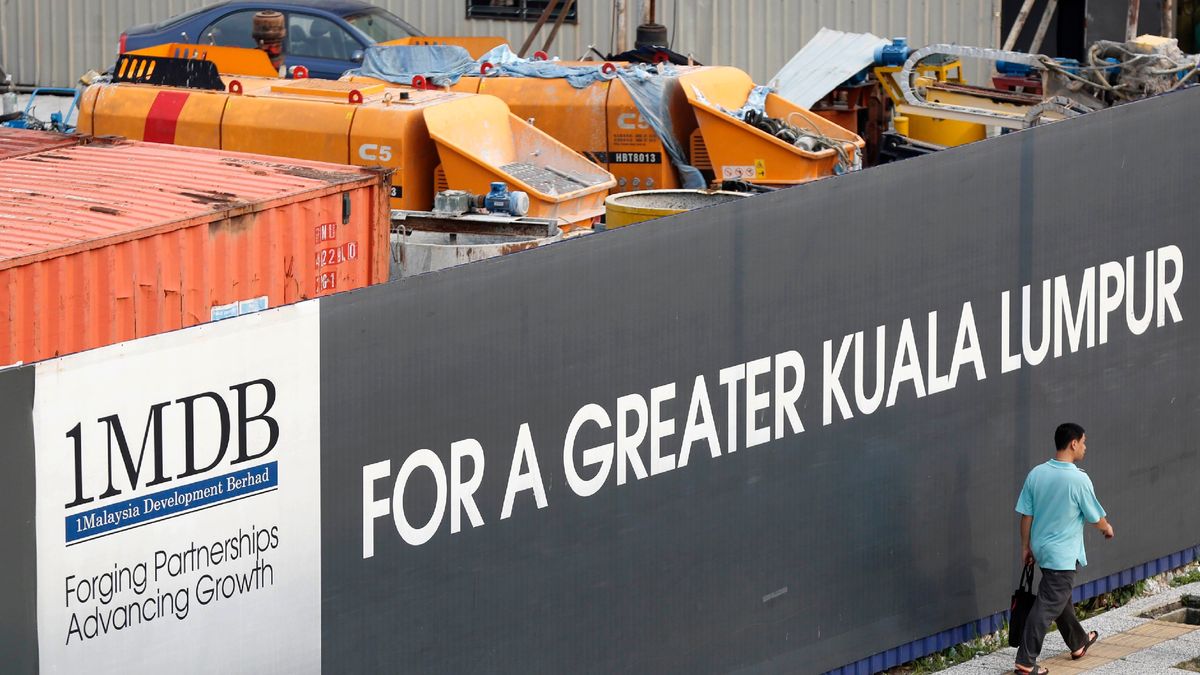The aftermath of the 1MDB scandal

A few minutes every morning is all you need.
Stay up to date on the world's Headlines and Human Stories. It's fun, it's factual, it's fluff-free.
In 2015, it was revealed that money for the Malaysian state fund 1Malaysia Development Berhad had been siphoned by government officials, inaugurating a still-ongoing scandal in Malaysian politics and international banking.
Malaysia’s 1MDB scandal toppled a government, humbled a giant multinational banking firm, and revealed the public money used by Malaysian politicians and officials at the highest levels to personally enrich themselves.
The 1MDB (short for “1Malaysia Development Berhad”) scandal was also notable due to the fact that it was perpetrated on a global scale. Though at first glimpse the scandal appears to be purely a Malaysian issue, 1MDB proved to be significantly more. 1MDB money was funneled around the world to purchase superyachts, millions of dollars worth of fine art and jewelry, and was even used to fund the hit 2013 film “The Wolf of Wall Street.”
But in some ways the scandal is still far from over.
Jho Low, the alleged mastermind of the plot to siphon billions of dollars from the state fund 1Malaysia Development Berhad, remains at large. Meanwhile, Malaysia continues the process of recouping the massive financial losses it’s sustained, as well as prosecuting those believed to have been involved.
TMS looks at where 1MDB’s main actors are now and what the scandal has meant for those implicated.
Billion-dollar corruption
In 2015, it was revealed that money for the Malaysian state fund 1Malaysia Development Berhad had been siphoned by government officials, inaugurating a still-ongoing scandal in Malaysian politics and international banking.
The fund was founded in 2009 by Najib Razak, the former Malaysian prime minister and finance minister, who billed it at the time as a “strategic development company driving new ideas and new sources of growth.” As details of the scandal unfurled, however, it was revealed that 1MDB money had been used on billions of dollars worth of vanity purchases for top government officials.
Then-Prime Minister Najib Razak sought to tamp down on the mounting criticism of his government’s alleged misuse of the fund by targeting critics. The prime minister fired the attorney general who led the investigation into reports that some US$700 million of 1MDB money had been deposited into Razak’s personal bank account.
Razak also used the country’s anti-terrorism laws to crack down on protesters and jail the leaders of pro-democracy groups critical of his government’s corruption.
But these efforts to contain the government’s misuse of state funds did not last. In June 2017, the United States Department of Justice stepped up its efforts to investigate the scandal, saying that it believed more than US$4.5 billion had been siphoned from the 1MDB fund.
Then, in May 2018 amid public outcry against his government, Razak’s party was defeated in the Malaysian general election. This was the first time his United Malays National Organisation had been out of power since the country’s independence in the 1950s.
Following his defeat, Najib was put on trial where he proclaimed his innocence by placing the blame on the Malaysian financier Low Taek Jho, often called Jho Low, for pulling him into a “nefarious web of deceit.”
But the hundreds of millions of dollars worth of luxury jewelry bought using 1MDB money for Najib’s wife, Rosmah Mansor, seemed to poke a hole in this defense, leading the court to ultimately find Najib guilty of corruption.
Tarnished reputation
Razak was not the only figure to face a tarnished reputation as a result of the scandal, however.
In the aftermath of Razak’s guilty verdict, American multinational banking giant Goldman Sachs Group Inc. was made to pay US$2.5 billion to the Malaysian government to settle allegations of its own misconduct connected to the 1MDB scandal.
The bank also agreed to return a further US$1.4 billion in 1MDB assets seized around the world in return for the Malaysian government dropping criminal charges against the bank.
In October, the bank’s Malaysian subsidiary, Goldman Sachs Malaysia, pled guilty in the US to violating the Foreign Corrupt Practices Act. The bank was also fined an additional US$350 million in Hong Kong.
Goldman Sachs suffered a total loss of around US$5 billion from the scandal. Worse than this was the bank’s loss of reputation, which had slowly returned following its part in causing the 2008 financial crisis.
In response to its agreeing on a plea deal with US authorities, Goldman Sachs chairman and chief executive officer David Solomon told employees that though “we have to acknowledge where our firm fell short,” the bank was “pleased to be putting these matters behind us.”
Solomon and his predecessor, Lloyd Blankfein, were also forced to give up pay for their conduct connected to the scandal.
On the run
With a Malaysian Prime Minister brought down and an international banking firm humbled, all prosecutors needed was to locate the alleged mastermind of the 1MDB scheme, Malaysian financier Jho Low.
To date, that has not been possible.
Prime Minister Najib Razak pinned Jho Low as the “mastermind” behind the siphoning of billions of dollars of 1MDB money. Low certainly made the most of his connection to the scheme, spending millions of dollars of 1MDB money on yachts, fine art, and funding for the 2013 Martin Scorcese film “The Wolf of Wall Street,” for which his name was listed in the credits.
But the financier has kept a low profile for years, despite giving up around US$900 million in assets connected to the 1MDB Scandal to US prosecutors.
In July, Malaysia’s national police chief Abdul Hamid Bador reportedly stated that Low was hiding in the Chinese city and special administrative region of Macao. Extradition attempts had failed, however, as Chinese authorities were being “insincere” in their efforts to cooperate, according to the police chief.
Chinese authorities rejected these claims as “groundless and unacceptable,” stating that they had been unable to trace Low but would continue their efforts to support Malaysian authorities in bringing the fugitive financier to justice.
But Al-Jazeera has also reported via sources of its own that not only is Low currently living in Macao but that he’s been there since February 2018, hosted in a house owned by a senior member of the Chinese Communist Party.
Al-Jazeera also revealed that, in the aftermath of Najib Razak’s electoral defeat in 2018, Low attempted to strike a deal with the new government of Mahathir Mohamad to drop charges against him.
Low argued in phone calls with Mohamad’s government that all decisions regarding 1MDB money were carried out at the behest of Najib Razak and that he personally believed that there had not been “any wrongdoing.”
Low claimed, according to phone transcripts seen by Al-Jazeera, that money that had been taken from 1MDB for his personal purchases “ultimately were loans,” which he intended to pay back.
For now, Low remains one of the missing pieces in the 1MDB scandal that has already created huge waves and repercussions around the world.
But Low’s continued fugitive status shows that the truth behind 1MDB, including who called the shots and precisely how vast amounts of money were siphoned, may remain unknown for some time.
Have a tip or story? Get in touch with our reporters at tips@themilsource.com




Comments ()